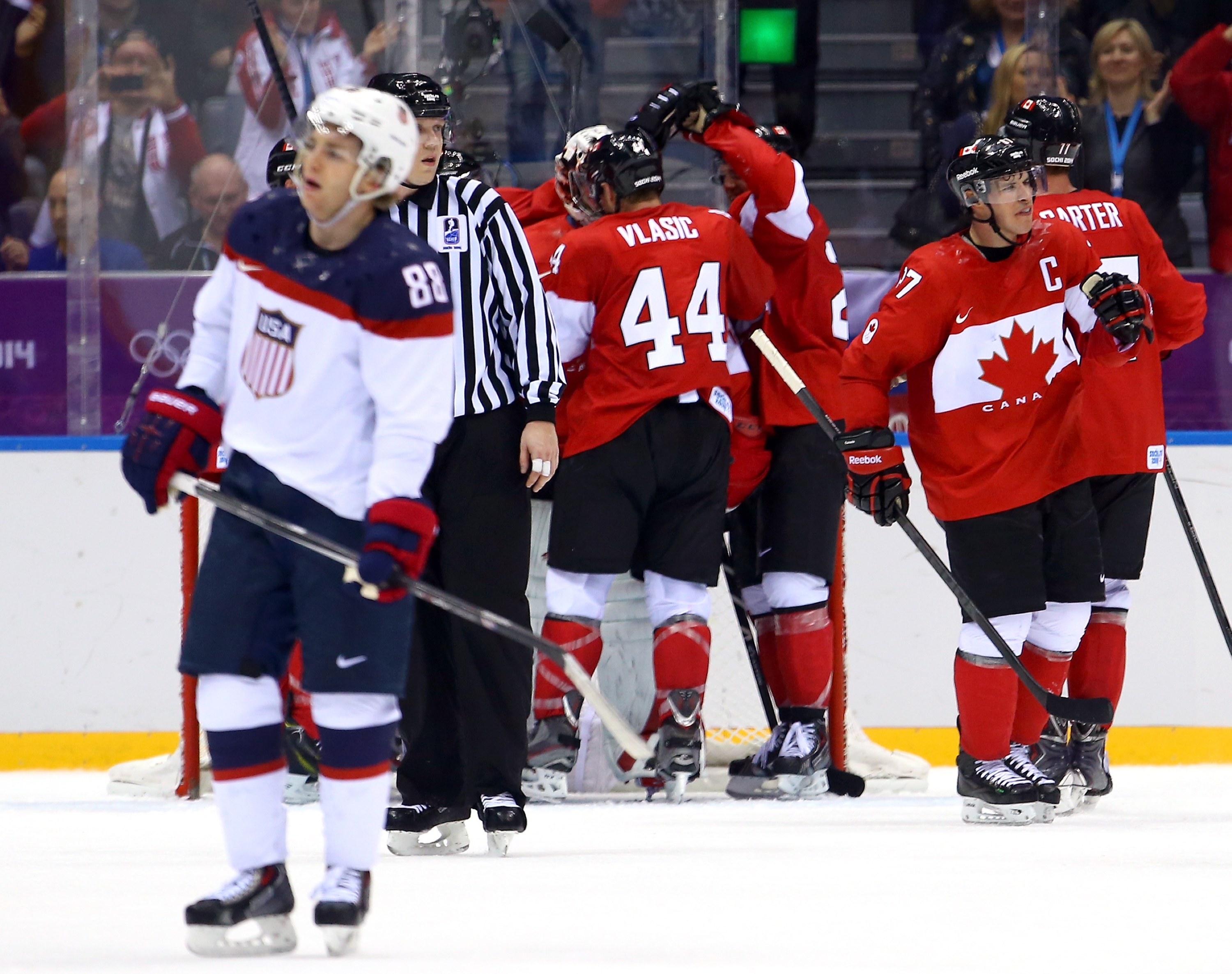SOCHI, Russia – For both Finland and the U.S., the bronze medal would symbolize perseverance.
The Finns overcame injuries to key offensive players before and during the tournament; giving Canada a scare in the preliminary round, eliminating Russia in the medal round and coming within one goal of Sweden in their semifinal game on Friday. The bronze, then, could be seen as an achievement from a nation that’s perpetually underestimated in the Olympic tournament.
But for the U.S., perseverance means putting a devastatingly disappointing loss to Canada behind them and attempting to leave Sochi with a medal and their pride intact.
[Related: Team USA haunted by ghosts of Olympics past]
“It’s better than nothing,” said Patrick Kane, on the bronze, after the loss to Canada. “It's one of those situations where I guess we're going to try and have to get up and find some energy tomorrow to play Finland and try to bring home something instead of nothing.”
Finland is second in the Olympic tournament with 19 goals in five games, one behind the Americans. Their offense has thrived despite the absence of Valtteri Filppula and Mikko Koivu, two key offensive players that were injured before the tournament; and Aleksander Barkov, who was injured during the tournament.
Making up the offensive difference has been Mikael Granlund of the Minnesota Wild, who has five points in five games; and the legendary Teemu Selanne, 43, who has four points in four games in what should be his last Olympics.
“A bronze medal would be an unbelievable thing, so that is our goal now even though it is very disappointing right now,” he said after the 2-1 loss to Sweden.
The Finns have surrendered 10 goals in five games; the U.S. has yielded seven in five games. Finland entered the tournament with the deepest goaltending pool. Tuukka Rask of the Boston Bruins missed their semifinal game against Sweden with what the team said was the flu. If he can’t go, Kari Lehtonen and Antti Neimi are up to the task.
[Video: U.S. women heartbroken over hockey loss]
Their team defensive concept – trapping back to their own zone, using their sticks to interrupt the offensive flow in the neutral zone – gave both Canada and Russia fits.
It could do the same to the U.S.
But the big question in the bronze-medal game: What U.S. team will we see? The dynamic offensive one that took the fight to foes in their first four games of the tournament, or the one that played on the margins and couldn’t utilize the larger ice in that smothering loss to Canada?
More to the point: Will we see a U.S. team fighting to medal or settling for bronze?
“We’ve got to turn the tide and play our butts tonight. We’ve got to try and bring home some hardware. That’s all we can do at this point,” said U.S. center David Backes.
|
|
|
Results 1 to 1 of 1
-
02-22-2014, 08:00 AM #1Administrator



- Join Date
- Jun 2007
- Location
- Canada
- Age
- 49
- Posts
- 60,916
- Blog Entries
- 3
- Downloads
- 9
- Uploads
- 12429
 Can Team USA overcome devastating loss to earn bronze vs. Finland?
Can Team USA overcome devastating loss to earn bronze vs. Finland?
Similar Threads
-
Puck Daddy Viewing Guide: Finland, U.S. battle for bronze
By admin in forum Sports NewsReplies: 0Last Post: 02-22-2014, 08:00 AM -
Team Finland to donate autographed Sochi bikes
By admin in forum Sports NewsReplies: 0Last Post: 02-18-2014, 08:00 AM -
Finland announces Olympic team; Saku Koivu withdraws
By admin in forum Sports NewsReplies: 0Last Post: 01-07-2014, 08:31 AM -
Kyle Turris trashes Finland hockey experience in interview; Finnish team says he?ll o
By admin in forum Sports NewsReplies: 0Last Post: 12-18-2012, 08:58 PM -
How can i overcome Short-term memory loss?
By Yongi in forum HealthReplies: 0Last Post: 03-20-2009, 07:16 PM






 Reply With Quote
Reply With Quote
Bookmarks